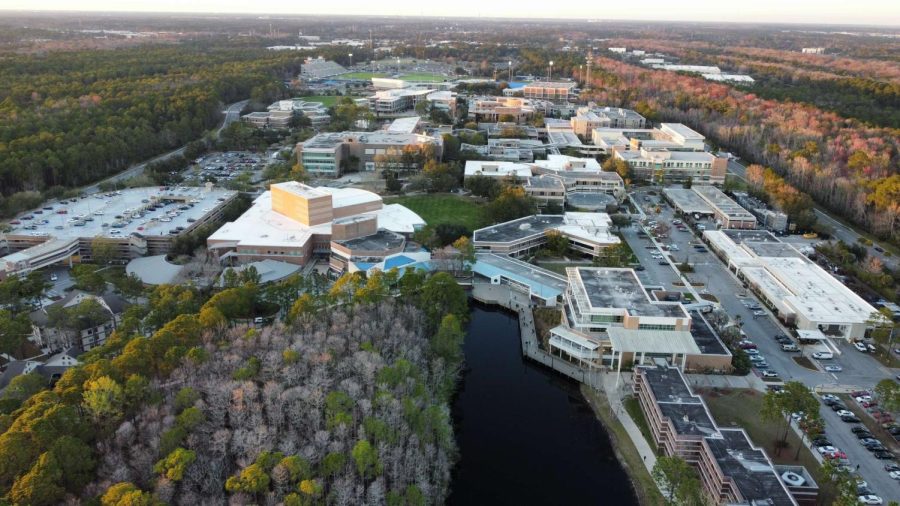Visit the UNF philosophy program graduate page and what will you find? “We are not accepting applications at this time.”
Why? After a year of consideration, UNF is canning their philosophy graduate program.
According to Mitch Haney, associate professor of philosophy and chair of the philosophy program, after 2011 the university wasn’t seeing a lot of students who were interested in being part of the philosophy graduate program. He says it’s not just at UNF but the trend is showing up nationwide.
“We didn’t want to lead people on into thinking they had really good prospects and it’s really hard to run a Ph.D. program with only a few students because you can’t give them any specialized graduate courses,” Haney said. “They all have to be mixed with undergrad.”
The disappearance of the philosophy graduate program affects undergrad students who plan on furthering their education in the philosophy field by disqualifying staying at UNF as an option for further schooling.
“Summer class schedule for philosophy is incredibly slim and we haven’t had a dedicated or reliable philosophy advisor since the beginning of the semester,” said senior philosophy student, Weston Funcheon who said he wasn’t aware of the university’s decision to can the program and that he wasn’t very surprised.
“I was up in the air about it, I guess the university made the call for me,” said Weston. “It could have been avoided, but in order for the university to want to avoid it, their priorities would have to be pedagogical and not capital and I don’t think I claim the former outweighs the latter.”
“I will say that in general, philosophy is not given the same respect and funds as STEM programs, despite its importance in multiple disciplines and fields,” said undergrad philosophy student, Trent Gautney. “Philosophy is an academic field that requires a graduate degree to pursue a career in and this recent move limits many students’ ability to pursue this here at UNF.”
Not only does this change affect students, it also affects adjunct professors and their jobs which are already unpredictable. Adjunct professors are hired by schools on a part-time basis as opposed to full-time employment.
“In the end it probably makes it harder for us to have a pool of adjuncts that we can tap to teach general education courses but that’s not necessarily a bad thing because adjuncting is not exactly an easy way of life,” Haney explained.
__
For more information or news tips, or if you see an error in this story or have any compliments or concerns, contact editor@unfspinnaker.com.












